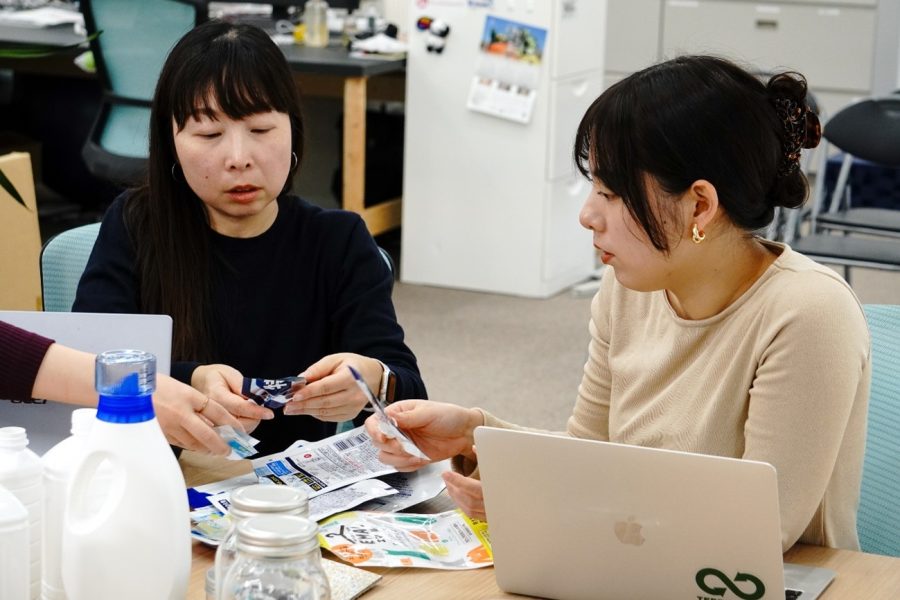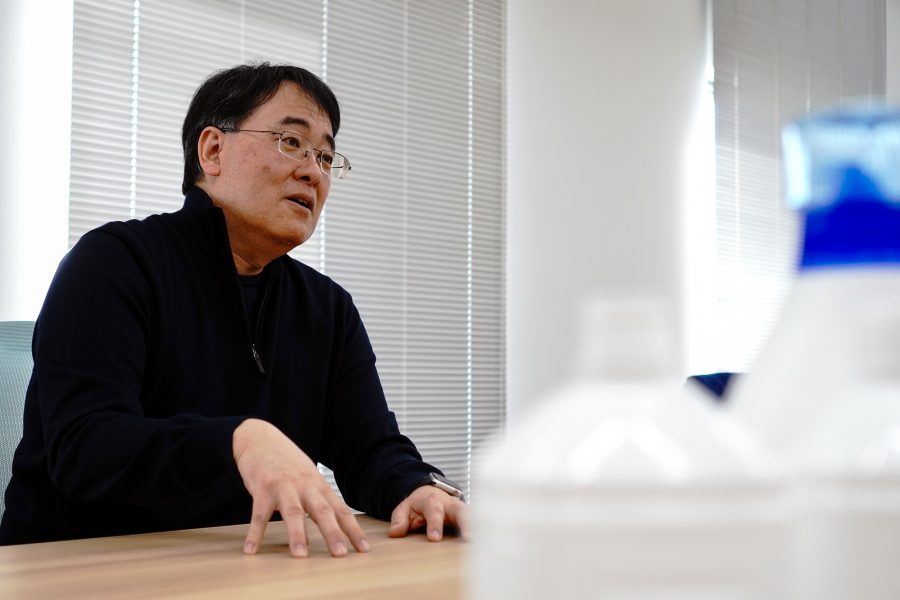
First, they set out to create a platform to collect and recycle plastics and other resources. While searching for a network of contractors to handle logistics, processing, and other aspects of the project, it was especially difficult to find companies that deal with material recycling because the number is low. Once they were able to negotiate a deal, they visited the companies and held discussions many times to gain their trust. At the same time, they visited government agencies and companies to explain their philosophy and business plan. In collaboration with cigarette sales companies and cosmetics manufacturers, they started a program to collect and recycle their wastes. The filters from cigarette butts were turned into ashtrays and plastic files, and empty cosmetics containers were recycled into spatulas, which were distributed to customers, disseminating our efforts.
But the distribution among consumers was slow. If the amount collected does not increase, recycling costs will increase. Kawabata realized that “Many Japanese consumers think that because they do their own waste sorting at home, they are fulfilling their share of responsibility and do not feel the need to participate in the program. Accordingly, just appealing for collection is not good.” So, together with the daily necessities manufacturer “Lion,” Kawabata launched a program to collect used toothbrushes and recycle them into flowerpots as part of a comprehensive learning program at schools. They received comments from students such as “I was surprised to learn that we can make the earth cleaner if we recycle instead of throwing wastes away,” and they felt the response was positive.
The tide turned in 2018 when China decided to ban imports of recyclable waste. Japan, which was a top exporter, was forced to respond, and TerraCycle’s activities began to be covered in the media. The number of partner companies and brands increased, and a variety of “waste-free” programs for refill packs, medicine sheets, disposable diapers, pens, and other waste materials were implemented in rapid succession.
In order to make as many people as possible feel that they can also contribute to the realization of a recycling-oriented society, they carried out various collaborative projects involving citizens in 2021. For example, in collaboration with P&G Japan and Aeon, they collected used plastic containers of P&G products at the stores of Aeon Group companies and recycled them as materials for face shields. These efforts have led to the Co-Design Challenge. Kawabata has high hopes for the event and comments, “We don’t know how many people will participate, but the response is growing by the day, and we believe it will be a big hit.” After the event closes, the collection boxes will be returned to the community, and the sorted used containers and other materials collected will be used again for recycling.
This year marks the 10th anniversary of the start of business in Japan. Activities to find new possibilities in what had been considered trash have spread throughout the country, and cooperation with government agencies has advanced dramatically. Kawabata is confident in Japan’s potential, saying, “The recycling and reuse efforts are not advancing all at once because of the problem of economic efficiency. However, Japanese people have the strength to value the community and work hard together. We want to show that anything is possible if we involve various stakeholders. Japan’s challenge should serve as a good model for other countries.”


Share this article


